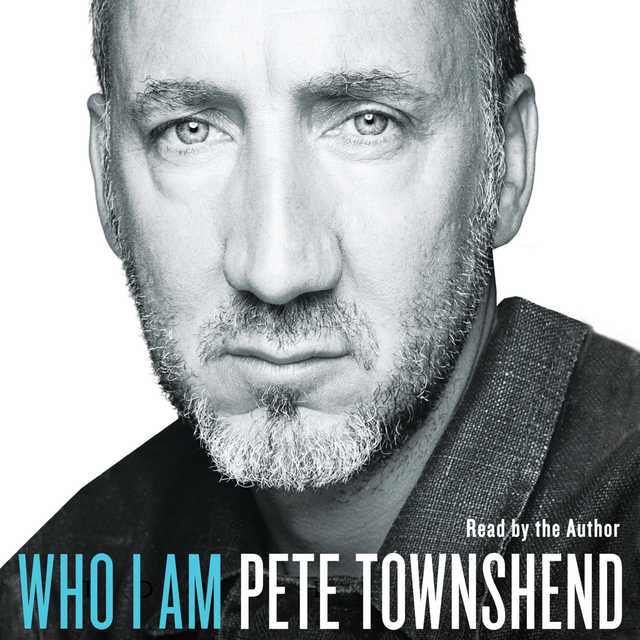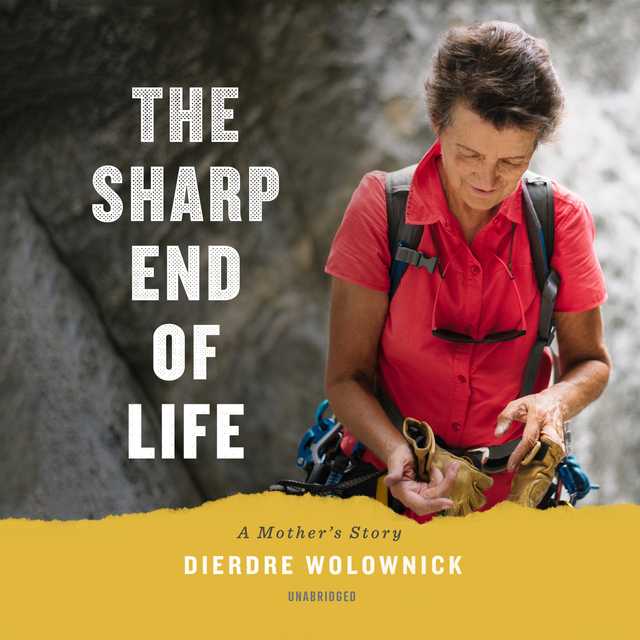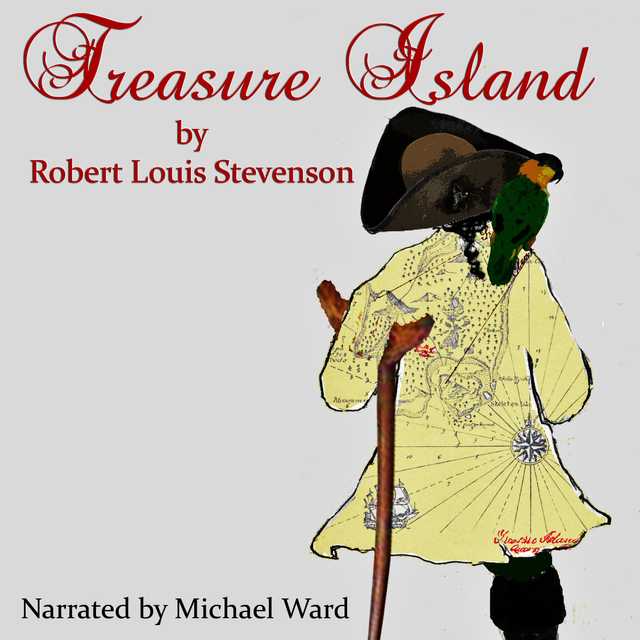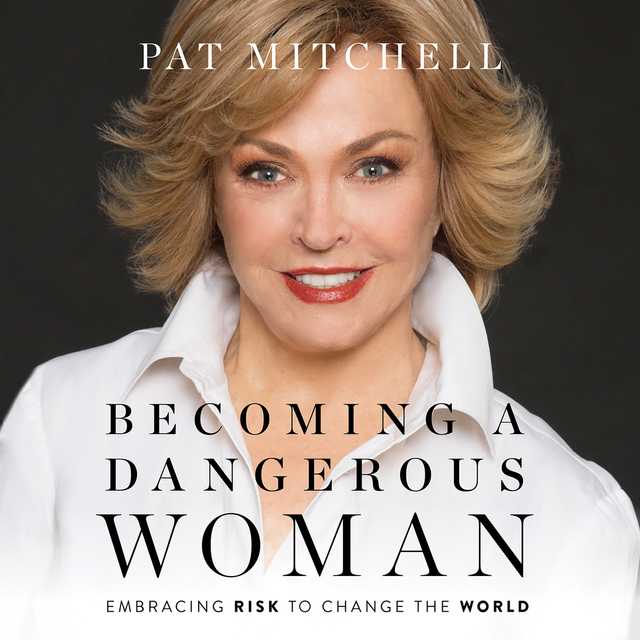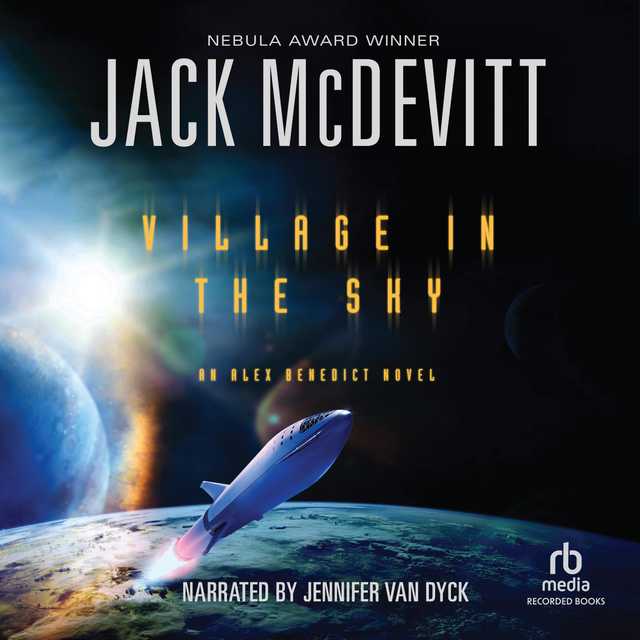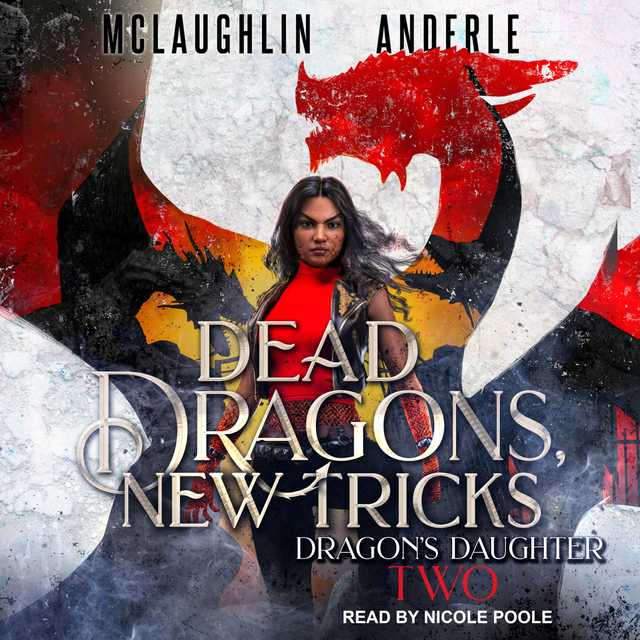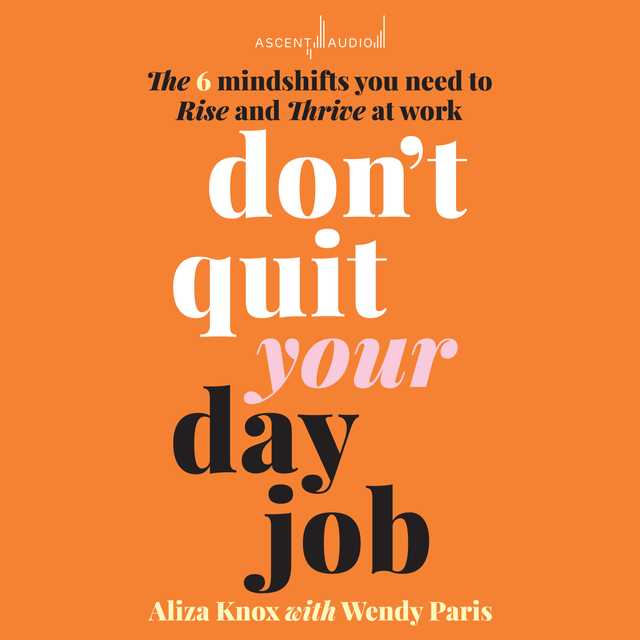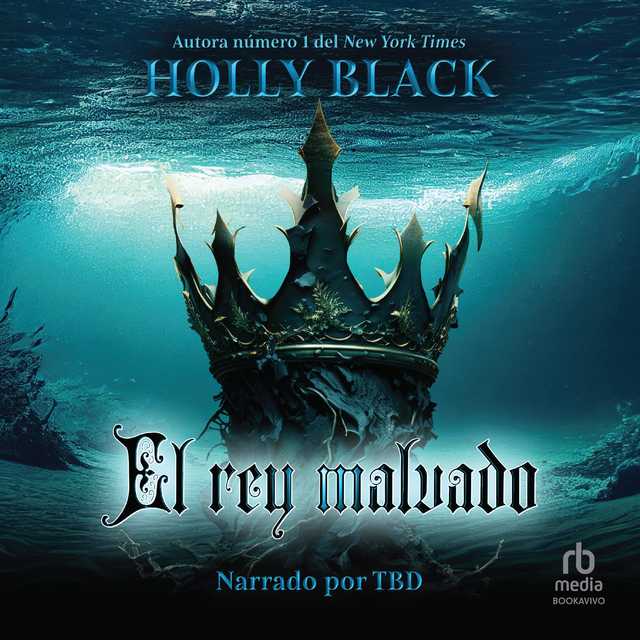Who I Am Audiobook Summary
From the voice of a generation: The most highly anticipated autobiography of the year, and the story of a man who… is a Londoner and a Mod…. wanted The Who to be called The Hair…. loved The Everly Brothers, but not that “drawling dope” Elvis…. wanted to be a sculptor, a journalist, a dancer and a graphic designer…. became a musician, composer, librettist, fiction writer, literary editor, sailor…. smashed his first guitar onstage, in 1964, by accident…. heard the voice of God on a vibrating bed in rural Illinois…. invented the Marshall stack, feedback and the concept album…. once speared Abbie Hoffman in the neck with the head of his guitar…. inspired Jimi Hendrix’s pyrotechnical stagecraft…. is partially deaf in his left ear…. stole his windmill guitar playing from Keith Richards…. followed Keith Moon off a hotel balcony into a pool and nearly died…. did too much cocaine and nearly died…. drank too much and nearly died…. detached from his body in an airplane, on LSD, and nearly died…. helped rescue Eric Clapton from heroin…. is banned for life from Holiday Inns…. was embroiled in a tabloid scandal that has dogged him ever since…. has some explaining to do…. is the most literary and literate musician of the last 50 years…. planned to write his memoir when he was 21…. published this book at 67.
Other Top Audiobooks
Who I Am Audiobook Narrator
Pete Townshend is the narrator of Who I Am audiobook that was written by Pete Townshend
About the Author(s) of Who I Am
Pete Townshend is the author of Who I Am
More From the Same
- Author : Pete Townshend
- The Age of Anxiety
- Publisher : HarperAudio
- Abraham
- American Gods [TV Tie-In]
- Dead Ringer
- House of Sand and Fog
- Prey
Who I Am Full Details
| Narrator | Pete Townshend |
| Length | 17 hours 56 minutes |
| Author | Pete Townshend |
| Category | |
| Publisher | HarperAudio |
| Release date | October 08, 2012 |
| ISBN | 9780062205209 |
Subjects
The publisher of the Who I Am is HarperAudio. includes the following subjects: The BISAC Subject Code is Biography & Autobiography, Entertainment & Performing Arts
Additional info
The publisher of the Who I Am is HarperAudio. The imprint is HarperAudio. It is supplied by HarperAudio. The ISBN-13 is 9780062205209.
Global Availability
This book is only available in the United States.
Goodreads Reviews
Tania
December 31, 2012
As a long-time admirer of Pete Townshend's songwriting and musicianship, both as part of The Who and as a solo artist, I was a bit nervous about reading this book. It can be very disillusioning to discover that people we look up to as inspirations are, in fact, real people, and may not correspond at all with the lofty ideals we build about them in our own minds and dreams.Let me say that on finishing Who I Am, my admiration for Pete Townshend both as an artist and as a person has only deepened. Who I Am is an honest, unvarnished account of an artist's life - of the art he makes and the struggles he faces behind the stage curtain. Townshend, it must be said, is a spectacularly successful musician in anyone's terms - he has had all the gold records, critical acclaim, and financial success that any of us could wish for. True too, he emerged at one of the most interesting and vital moments in British music history. All of this territory is covered with enough detail to satisfy fans of 60's music/history and The Who. What is most interesting and unexpected though, is Townshend's revelation of the personal cost of being this luminary, wind-milling rock god of legend. How can a marriage or family life be sustained when one is away touring for months on end on a regular basis? How can one reconcile the public's image of a rock star with one's own unresolved personal traumas and profound insecurities? What shocks here is the sense of loneliness, of a man always on the periphery: adored by millions, yet alone in endless hotel rooms; the supposed wild man of rock who watches his bandmates' antics from the sidelines and worries about his marriage. It is in the tension between these two worlds that Townshend reveals his humanity and vulnerability, and also the impossible position in which we place those whom we idolise and set apart from the common throng.Townshend does not flinch from his infidelities, his addictions, his psychological struggles, and his intimate and unguarded writing style serves him well here - drawing the reader in to a sympathetic understanding of circumstances and a status that most of us would struggle to imagine. Townshend writes beautifully - and this should come as no surprise to anyone who has ever really listened to the lyrical brilliance and innovative story-telling style of his songs.The other gem in this book is the fascinating thread of spiritual yearning and an almost mystic sense of wonder that runs through it: from Townshend's boyhood experiences of ecstasy in hearing some kind of transcendent music in nature, to his adult pursuit of spiritual fulfilment through the teachings of Meher Baba.What I am left with is my own sense of wonder, that despite often immense difficulties, both personal and professional, Townshend has produced (and continues to produce) some of the most dynamic, thoughtful and interesting music in the popular sphere and has emerged as one of rock's great survivors and successes. I finished the book feeling a great sense of our common humanity - that it is ok to be flawed, to struggle, to sometimes fail. What matters - what can raise us above it all - is the creative spirit and the quest to make whatever art you make. In the end, Who I Am is an uplifting and triumphant memoir. I would highly recommend it.
David
March 05, 2013
I have been a fan of Pete Townsend and the Who ever since I rode my 3 speed bike 28 miles to the BIg N in Jamestown, NY to buy the "Who Sell Out" record. I told my mom I was going to do that and I don't think she believed me. She came to get me and picked me up on the road in Dry Brook. Pulled over, put my bike in the trunk and didn't yell at me at all! Anyway, I got this book for Christmas and just finished all 507 pages. I learned a lot about Mr. Townsend, his enormous vocabulary, and about the history of rock music from the eyes of one of its most prolific writers. Much of Pete's introspection focuses on his suspicions that he was sexually abused as a young boy by relatives and and emotionally abused by his mother who was incapable of raising him in his formative years. Sadly, much of the book reads like an expanded list of events that occurred from a totally narrative, newspaper-y point of view. Seldom does Mr. Townsend immerse himself in his own introspection and really let loose with his feelings about what happened, is happening, or is about to happen. I was hoping for more detail and background into how he wrote Tommy and other hits. Paul McCartney's autobiography read like one, and also like a treatise or textbook on how to write a hit song. I expected as much from Mr. Townsend, but felt his book was lacking in this area. I recommend the book to any of you who are interested in details about the life of a British Rock Star beginning in the 50s, through the turbulent 60s and Woodstock, all the way to now, but know that he lacks feeling at times when he should most display feeling and compassion toward others - his wife and children for example.
Bill
June 17, 2013
I enjoyed reading this memoir, at least for a while. It moves quickly and , as a fan of the Who, captivated my interest quickly. Townsend knows how to write (this was not ghosted). In fact, he has written numerous short stories, worked as an editor at Faber and authored columns for British music magazines. While numerous major figures in the rock and roll galaxy move in and out of the discussions in the book, this is not a tell-all. Townsend's focus is on himself and he is unsparing in his descriptions of his infidelities, addictions to numerous substances, and participation in activities he now regrets.The books shortcomings are surprisingly in its structure. While chronological, Townsend rarely spends much time or discussion on any given subject--rather, events or appraisals of others are dealt with quickly and tersely so the reader comes away having learned only that certain things happened but in many cases, not much else.As Townsend's narrative proceeds into the post-Who timeframe, it seemed as though his life became a repetitive cycle of compositions of songs that Townsend almost always sought to develop into a movie, or a stage play and spent a tremendous amount of time, energy and money to make these grandiose plans happen, sometimes with a degree of success. His family life suffered greatly as he focused on his art at the expense of his wife and children. The book does not stint on this harsh self-appraisal and Townsend admits he was aware of what he was doing at the time but felt compelled to do so despite the costs. The repetition becomes somewhat tiresome.Overall, it is a worthwhile read and stands as a good complement to Keith Richard's autobiography.
Dave
July 15, 2013
Pete Townshend’s memoir is exactly as titled: Who ‘I’ Am. In other words, it’s all about Pete. That’s fine – and what a memoir is normally about. But Townshend has never been a major solo icon (sorry fan club members). Yes, he’s had solo success as a writer and artist, but is known best as a member of The Who. His greatest triumphs – Tommy, Woodstock, Quadrophenia and sold-out tours were as part of a group. A very famous group that is recognizable for the “sound” they created together, sold millions of records, and is in The Rock and Roll Hall of Fame.But in this book, his band mates are barely more than extras in the background. Townshend spends more time describing his boats and the audio equipment in his many home-based recording studios, instead of (for instance) meeting John Entwistle (a childhood friend), major disagreements with Roger Daltry (except once describing how Roger knocked him out), and more insights into the joys and frustrations that had to be daily events while working with the self-destructive Keith Moon.Again, it is Townshend’s story and he’s very frank and honest in telling it. His mental state and musical muse always seem to be in question. He also talks about his battles with alcohol, drugs, relationships and sex. But mostly it’s about his creative process. The results were always more artistic and ambitious in comparison to projects by most of his pop / rock peers. But the leader of one of the world’s top rock bands (that position would be argued by Roger Daltry) should be expected to shine more light on the artistic and creative project – The Who – that made him famous in the first place.
Tom
June 19, 2019
Long in coming, this is a rocker autobiography well worth waiting for. (And, waiting for me to get around to it.) In this audiobook, having Pete narrate it himself makes it more personal and adds dimension as he frequently chuckles or sighs in a way adding nuance to key passages. So, this is not a Who memoir, but a Townshend memoir. Whole Who and even solo albums can be dispensed with by a sentence or two. There is none of the detailed session notes and track-by-track minutiae that often comes with such histories. Now, I like those too. This is about Townshend's career outside of the band; solo career, (book) publishing efforts and more, including his family life, life on the road, and battle with coke and the bottle. Also in there is him grappling with the realities of his own remembered abuse as a child, being outed as a bisexual, and his child-porn arrest. There may be a lesson for anyone confronted with criminal charges here. While he claims to have been researching for his 2002 treatise, he also decided on admitting he used his credit card to gain access to a child-porn site. The guitarist was placed on the sex offenders register for five years while apparently no proof could be found that the credit card company took the money. (Maybe tht financial insitution was more circumspect than Townshend.)Something that jumped out at me is while The Rolling Stones get mentioned about twenty times, Led Zeppelin is only-named dropped five times and seem to be a subject that is a present absence and there seems to be a dismissive tone to the few mentions. This made my Google:"led zeppelin" "pete townshend"Apparently, I am not the only one suspicious that Townshend harbors ill feelings for that group. One thing that does get mentioned much is his prescient vision for the internet as it would affect music distribution and creation. He seems so spot-on in hindsight on so much it makes me wonder if he could really have had the gift of so much accurate foresight. This makes me feel a few aspects of the Townshend personality and story could be shaded differently with the perspectives of others close to his life.Anyway, I had no idea of his deep adherence to Meher Baba, an Indian spiritual master who said he was God in human form, and how this affected the Tommy storyline. Also, Townshend is very forthcoming on his awkward attempts to participate in the changing sounds - punk included - while his hairline receded over his boiler suits and Doc Martens. He admits to a lot of unfortunate rage, fisticuffs, and destructive behavior if not to the lengths that eventually subsumed "John" and "Moonie".
Deidre
January 20, 2013
I finished reading "Who I Am" by Pete Townshend last night. It was a good book from start to finish and very well-written by the author. I've always admired Pete Townshend as a composer, musician and vivid story-teller. He also has a wry sense of humor, which is just as enjoyable as his other talents.There are three passages in his autobiography which made me laugh out loud in particular. The first was when Pete and Roger Daltrey (lead singer of The Who and an accomplished actor as well) were attending a party in the early 1960s. Roger was known to be a bit rough around the edges, to put it mildly. Pete wrote of the party and Roger et al: We saw fighting aplenty, and I have Roger to thank for the fact that no one ever laid a hand on me. Even a nasty drunk knew better than to provoke him. In 1965, Pete bought a 1936 Packard V12 hearse. He parked it outside his flat in Belgravia, London. One day the vehicle was missing, and he feared it had been stolen. Instead, he learned it had been towed and impounded. Out of nowhere I received a call from a man who wanted to buy the Packard. It emerged it had been impounded at the request of the Queen Mother. She had to pass it every day, and complained that it reminded her of her late husband's funeral. The bill to recover the car was over £200, an absurdly large sum of money, but the buyer offered to pay the fee in return for ownership. I agreed, and resentfully dedicated "My Generation" to the Queen Mother. And finally, in 1996, Peter was aboard a Concorde flight from London to New York. The plane emergency-landed in Halifax because of technical difficulties (intense shaking as he described it). Also on the airplane were Elton John and his partner David Furnish. Townshend remarked how calm he remained through the event, but then wrote: I wanted to commiserate with Elton abut a hysterical woman who'd started screaming (during the bumpy flight)."That was me, darling," Elton confessed. I highly recommend "Who I Am" to anyone who enjoys reading about the same era of culture and music. I'd rank Pete Townshend's book in the top five of all-time best autobiographies I've ever read (and I've read plenty of them).Online review:http://deborahotoole.tripod.com/Irish...
Becky
December 31, 2012
I was so excited to read this book, especially after seeing a number of interviews with Pete about it. In the interviews, he spoke about trying to get his mother to talk to him about his childhood for years and how he finally succeeded while writing this book. He was so candid and his answers so heartfelt, and I expected more of the same from the book. I was a little disappointed. At a number of points in the book, the topic seemed to change in the middle of a section, leaving story threads hanging. I kept expecting him to tell the story about his mother in detail, and it wasn't there at all. I've read reviews that say he deals thoroughly with his arrest for child pornography, but I thought that was one of the stories that seemed to be missing something. I felt like I learned more about the situation from "Man in a Purple Dress," a song from the Who's 2006 album Endless Wire. (I should note that Pete's not the only one who claims the charges were made up based on one $5 charge on a credit card bill for a website he's never heard of.) When I read the acknowledgements, I understood why parts seemed choppy; he thanked his editor for helping him cut 500 pages from the manuscript. Some of those cuts could have been handled more smoothly. There's still so much good stuff, though. If you're a Pete/Who fan, you should read this book. There are great stories (many told before, but still awesome)and interesting insights into Pete's writing process and his playing. This is how I felt about this book right after reading it, but when I happened to read Rod Stewart's autobiography next, I realized that Pete's book lacks something else. Rod's book was so much fun in comparison. I know that's to be expected; Pete's the tortured artist and Rod's the eternal playboy, but it was more than that. Rod's book (written with a "real" writer) seemed more authentic, very true to his voice. I know Pete has more of a sense of humor than came through in the book; it would have been good to get more of that side of him.(Sorry for the inconsistent tense; I want to get this posted in 2012.)
David
March 05, 2013
Mr. Townshend's writing is friendly and accessible; I felt like a new friend who he was walking through his life, warts and all. He has the humility of a recovering person (a certain peace, serenity) mixed with bat-shit escapades, out of control ego AND insecurities, drugs/alcohol, black emotions. He never really crows about his 'victories', is tortured about balancing his work with his family, which includes the members of The Who.You will feel you really know the man. Pete has always been at the top of my fantasy dinner party guest list-my plan would be to keep him after and keep him talking into the wee hours, and now I feel a bit like I have.I had just finished the very good, but not excellent 'Who Are You' biography of PT, which I started in late 2012. Nearly 700 pages, it took months to read and at the end was a bit of a chore to finish. I bought 'Who I Am', at Xmas and thought it would be cool to read them back to back, to compare notes, insider vs outsider, etc. Turned out to be very Apples and Oranges. I started this on a Wednesday flight down to Florida (from Detroit) to visit grandparents and I finished it the following Monday, two(very busy)days after I returned. Its 500+ pages breeze by. Mr. Townshend started this tome in the mid-90s. It was worth the wait. It's a keeper-I scribbled all in the margins of my hardcover copy.
Gus
November 15, 2012
Pete Townshend has led a seemingly contradictory life. Eloquent and empathetic one moment, crass and insensitive the next. A spiritual soul that nearly succumbed to the pleasures of the flesh. A doting family man whose extramarital affairs inevitably destroyed his marriage. A brilliant guitar. A gifted songwriter. A lousy bandmate. A pretentious asshole. All of the above.I wondered for a while what it would take for Pete to finally publish his memoirs. As rock stars go, Pete Townshend has staked his claim as the thinking man's rock star, and rock's thinking man, a deeply sensitive, highly creative soul who's never been shy to bear his self and his soul to his public. Who I Am is exactly what one would expect, and expect nothing less from Townshend: a warts-and-all autobiography, a mix of maudlin and praise. Modest? Hardly. Brutally honest? Very much so.Townshend doesn't lavish much type on the Who as a band; there are countless tomes on the 'Orrible 'Oo, the best of which are Dave Marsh's Before I Get Old: The Story of the Who, and Richard Barnes' illustrated/oral history of the band, Anyway, Anyhow, Anywhere. Those expecting more salacious stories and triumphant tales are advised to read elsewhere. Instead, and wisely so, Townshend gives up many a glimpse into his thinking, his emotions, his reactions to life inside the Who and as a solo artist, all the while chasing the personal demons that have haunted him throughout his adult life. He doesn't shy away from the sexual and emotional abuse he suffered as a child at the hands of his deranged grandmother and "father figures" that did not have Pete's interests at heart. One listen to Tommy, and it's clear the two Townshends are evident: the brash, articulate, spirituality-seeking man, and the frightened, anxious boy. Who I Am is the story of the two Pete Townshends, at time hilarious, other times cringe-inducing. But this is Pete Townshend we're talking here. The man's never been known for his filter, and that's what we love about him. Even at his most arrogant, or his most vulnerable, Pete Townshend has never been anything more than honest, even if it means being brutally so.One word of warning: Who I Am is at times uncomfortably graphic, and he spares no detail in his harrowing story regarding his arrest, and acquittal, over child pornography charges. Even though Townshend was exonerated, he demonstrated great intent in exposing credit card companies too eager to approve charges made by pedophiles viewing child porn online, he also demonstrated shocking naivety in thinking he was simply doing the right thing. A massive misunderstanding - Scotland Yard was immediately convinced, upon his arrest, that Townshend was guilty of absolutely nothing - which led to his very public crucifixion. Townshend is still haunted by the incident, but his resolve is still absolute.It's taken Pete a long time to write this memoir - something he once claimed he'd write in his early 20's - but the wait's been worth it. As eloquent and heartfelt as he's been lyrically and on stage, Who I Am is equally as eloquent, as to be expected from rock' Man of Letters.Upon final read of Pete Townshend's well-stated memoir, you get the feeling that what Pete Townshend really needs is a hug. Come here, you big silly.
Phil
May 06, 2019
As I am getting ready to go see "The Who" on their "Movin' On" tour in a week, there is particular relevance to reading this now. Also, Pete Townshend and The Who has meant a lot me, since picking up the Who's Missing cassette back in 1984, when I was a teen, and delving full on into this band as my first and favorite classic rock band. Naturally I went on to enjoy my own era of music, but when you are young, you fall into some categories, and I was quite deliberate how I would approach listening to music in my life. Starting with history, and classic rock. Townshend's style of guitar playing vastly influenced mine as I developed it as well. So yes, it was probably essential reading for me to pick this up. That being said, this is an honest memoir from a person who knew at a certain point in his young life, that rock and roll music would be his future, even if he had to destroy it. From a musical family, we get early glimpses of things in his life that find their way into a lot of Who music, most relevantly Tommy. The writing is blunt and simple in the delivery and you can see that he has always lived with the darkness of abuse and addiction that has haunted him throughout his life and career. Even in a recent Instagram post, he is emotionally torn to perform parts of Tommy on the new tour. There is some great Who beginnings history too, however, and it is just amazing to hear about his relationships with Keith, John and particularly Roger. Knowing each other since kids, they are like family, sometimes estranged, other times close, and even other times business partners.He talks about his family, marriage, kids, sexuality, his troubles, addictions, spirituality and music highlights. Some events in the book where I thought there would be some extrapolated emotional voyage, he seems surprisingly detached; the '79 Cincinnati show and Keith Moon's death for examples. Those moments are addressed, just differently than I imagined, perhaps more honest to his point of view at the time. The book is a journey for himself as much as anyone who follows The Who, Pete Townshend, or even that heightened and amazing era of rock and roll music. From rock punk to rock "god", pauper to strangely wealthy, Townshend puts it all out there. It's a fucked up history, but a necessary tale to tell.As a fan, I get a sincerely intimate portrait of him. I really believe that. I've seen this guy's face in my life for so long now, he feels like an Uncle. (He is in his 70s now). This portrayal, this memoir, deepens my understanding of who he may be.
Mike
June 26, 2013
Who I Am is a comprehensive memoir starting with his earliest childhood memories of a troubled but still loving family life and how Pete's art school education heavily influenced early Who music and style and the direction of the band.He also talks about his battles with alcohol, drugs, relationships, fidelity, and his own sexuality, but the main focus is on his creative process. He is honest and open about his desires for ever-increasing financial payouts, recording studios, mansions and yachts.The book also sheds insights into relationships with bands like the Rolling Stones, The Beatles, Led Zeppelin, Cream, and Jimi Hendrix Experience. The death of his own longtime friend and bandmate Keith Moon seemed glossed over, barely getting more than a few paragraphs.He does address in detail the controversial use of his credit card to register with a website advertising child pornography, which he claimed was research for his campaign against child pornography on the internet. Ultimately, the police cautioned him, but no charges were filed against him.Pete Townshend is a gifted, and sometimes troubled man. Who I Am shares, in great detail, both his personal and professional life. If you are a fan of The Who, Pete Townshend, or early rock and roll, Who I Am takes you backstage to the life of one of rock's most complicated icons.
Sebastian
March 24, 2020
I love the British sense of humor it makes me laugh when I read it so Authentically funny as in this book. Who are one of the greatest rock bands of all time and this book is almost as good as their albums
Lynn
January 19, 2013
Pete has always been one to spill out all of his thoughts and feelings at any given moment in his career. This book is definitely no exception. Townshend comes clean about his faults, his drug use and drinking, his affairs, his fights both with the Who and other people he meets, and even his arrests, most notably for possession of child pornography in 2000.For what it's worth, I believe Townshend's explanation, which is basically that he was trying both to find out more about incidents that took place within his childhood and that he was trying to expose the system which enables Internet child porn. He pled guilty mostly to avoid a long, protracted court case; unfortunately, since that time, he's been labeled as a sex offender, a label which only held in Britain for a short period of time (barring further incidents, of course). He basically admits his stupidity and wishes he'd done things differently. I certainly didn't get any sense either from this book or from past incidents in his life that he's a child molester. I'll continue to believe that unless something else comes out.Be that as it may, this book is a lot more interesting and intelligently written than Keith Richards' memoir of a couple of years ago. Townshend goes into a great deal of depth about his music, his career with and without the Who, his friendships and marriage, and his children. Unlike Richards, he expresses a great deal of regret for the years he spent drunk and wasted, and the affairs he had during his marriage. I admire him for that.To me, the only significant omission is any description of the songwriting and sessions for the Who's first album, MY GENERATION. I got the feeling (only alluded to here) that Townshend didn't care much for the record's producer, Shel Talmy, and that may be why he gave it such short shrift. Happily, the remainder of his recording career suffers no such dismissal.Pete can be a pretentious, arrogant man, but he can also be a seeker of spiritual enlightenment and a rock critic of depth and intelligence. All these sides and more of him are showcased in this autobiography. Well worth your time.
Steve
October 13, 2012
Well written and fairly detailed memoir. Townshend comes clean and shares more details about his personal hardships and flaws than of his musical genius (in my opinion). Is he too humble? Does he seek forgiveness? Perhaps this book is a cathartic exercise. Still, as a big fan, I enjoyed reading every word. This book is a page turner.Good descriptions of behind-the-scenes managerial and financial transactions. It is fun when 1960s/1970s rock stars peel back the curtain and reveal what was really happening among the star making machinery. Even the band relationships had various levels of complexity.I would have found this book a little more rewarding if Townshend shared song-inception and studio-recording minutiae with the same detailed candor he writes about his mistakes and regrets.For me, it is disappointing that Quadrophenia earned so little ink. A reader can only assume he forgot details from the summer of 1973, which was when the Who recorded that epic album. I did smile, however, when I read Townshend's description of the band's attitude while recording Quadrophenia: "The rule we established during recording was that energetic musical rage would be used throughout."No doubt that Townshend is a complex and creative force who has inspired many. This book is among the best rock memoirs.
Dave
April 08, 2018
Townshend's very honest account of his life, trials, and tribulations was a rather quick and packed read. Like most autobiographies one must take into account that you are only getting one interpretation, but that interpretation is from the guy who had the sex, drugs and rock & roll life. Townshend's detailed account from his apparently abuse as a child by his grandmother to his amazing time with The Who and going solo are documented as are seemingly all of the women he has been with and has known. Near the end of the books Townshend relates the issue stemming from his being in the news for viewing child porn which was false. He was actually looking to give money to a Russian orphanage. All in all a really good read and account of Mr. Townshend's life.
Randy
March 23, 2014
Pete Townshend, Who I Am (New York: Harper Collins, 2012). 538 pp. Hardcover, $32.50.(This review originally appeared in the Carbondale, IL, Nightlife, March 20-26, 2014, pp. 18-19.) It had never occurred to me that The Who was a performance art troupe. Like a lot of people, I list them in the top five rock and roll bands of all time – we all know the list. Each of those great bands occupied a logical slice of the cultural pie, consciously worked out by the young marketing geniuses who pimped these bands to an unsuspecting world (the likes of Brian Epstein, Andrew Loog Oldham, and, for The Who, Kit Lambert and Chris Stamp). I was too young to grasp the differences in the 60s; it was all rock and roll to me, which meant very cool. By the time I achieved refined sensibilities, the scene had changed, so I never really got it until now. Pete Townshend’s book informed me that The Who was supposed to represent “the Mods,” while The Beatles cornered the Teddy Boy market and The Stones spoke for Ne’er-do-wells of all stripes. There was only so much space in the domain of cool, and when The Who began, categories for spacey art rock (Pink Floyd) and driving acid blues (Led Zeppelin) had not been imagined. Lurking in the background of the entire British Invasion were two constants: American R&B music, and “Art School,” that peculiar British hybrid of the trade school and the high-brow art institute. From Art School, Townshend had some difficulty deciding whether to be a musician or a sculptor, so he followed both paths until one crowded out the other. Hailing from a family of professional musicians, Pete’s choice now seems inevitable. But in the early 60s, he was being exposed to the collision of high art and popular culture, especially artistic auto-destruction, which is what I was witnessing on television as a child, while my father grunted sounds of disapproval that anyone would broadcast such a display. I distinctly remember Keith Moon kicking over his drums at the end of “My Generation,” and even then, I thought to myself, “Wow, I’ll bet that’s expensive.” But my father hated it, so I liked it. It is deflating to learn that this thrashing about was not anger, but art, consciously planned as both a gimmick and a statement. These kids weren’t poor and had nothing to complain about, and they knew it – the kids were alright. They were playing around, trying to get famous and make a lot of money. The one thing they were serious about, apart from that, was art, and to them, American R&B was the greatest art of all. Like The Stones and The Beatles and so many other English bands, The Who couldn’t really play R&B properly, and in botching the effort, created an entirely new sound that American youth lapped up like retriever pups in a room full of cat vomit. We had no idea this music was recycled (and we loved their accents and attitudes). The difference between a Mod and Teddy Boy was utterly lost on us, but at least we did notice that The Rolling Stones lacked manners. Reading Townshend’s account of this time is like entering a hall of mirrors unexpectedly: All the images are familiar, but they are stretched and twisted and back-lit. It’s hard to find the doorways. And here is Townshend himself, somehow traversing the 60s and 70s without serious drug use or addictions, or even sexual adventures, only to fall through every one of those funhouse trap doors in the 80s and 90s. I was surprised by his perspective and by his story. I hadn’t followed The Who since the early 80s and I wasn’t aware of their ups and downs in the last 30 years, so the second half of the autobiography was mostly news to me. I was unaware that Pete Townsend had undertaken a bunch of major compositions but I did not realize that he saw himself primarily as a “composer” (as opposed to a songwriter or performer). I can see that I have a lot of listening to do beyond my old LPs, and I look forward to that assignment. From the time of the release of Tommy as a movie, I loudly and annoyingly defended the idea that The Who brought a musical seriousness and credibility to the rock genre that no other group could have achieved. Townshend’s autobiography makes me feel vindicated, but I had no idea that Townshend was on the cutting edge of so many technical advances in recording and sound effects. Townshend depicts himself persuasively as a self-absorbed, now apologetic, narcissist who has reasons, but no excuses, apart from an artistic temperament, for his persistent weakness of will and fabled childish behavior. One almost senses that he is asking the world to forgive him his many transgressions in the name of the art he gave us, a latter-day Oscar Wilde with a 500-page de Profundis. The convenient thing about being important enough to write a major autobiography is that one can choose which specifics to condemn in oneself, and perhaps draw attention away from even greater faults. Townshend is clearly worried about his historical legacy and is busily doctoring the mythology. He wants to be seen as the Bach of our age and is sure to associate his name with the necessary classical lights, and to create a myth of his childhood, complete with mystical experiences of heavenly music. Bosh.I don’t know whether this is a tell-all scandal sheet, because I’m not sure what might be missing, but there are plenty of juicy bits about everyone, except Roger Daltrey. Unlike Townshend’s other bandmates, Daltrey has the distinction of remaining above ground, so if he ever strayed from the straight and narrow, that tale awaits another storyteller. The dead come in for a bit edgier treatment, and one assumes they won’t object. Among the other tabloid nuggets, Pete confesses that Mick Jagger is the only man he “ever wanted to f**k,” and is frank about his own infidelities, infatuations, intoxications, and infrequent incarcerations. But somehow, it feels contrived to me (maybe I’m just pissed off about the auto-destruction ruse), yet, I can’t help wondering whether all this embarrassing self-revelation is not leading me away from deeper secrets. And here we come to the motive force behind Townshend’s life, as he claims to understand it. Pete believes he was probably sexually abused as a young boy, but has blocked it from his memory. Surely no one can forget Keith Moon’s disturbing performance as the pedophile Uncle Ernie in Tommy. Townshend is indeed an artist and writer of a high order, and he knows as well as anyone that the gun appearing in the first act must go off in the third. He weaves his whole story in such a way as to make it completely convincing, when at the end of the book, he finally offers his full public defense regarding his 2004 arrest for visiting a Russian child pornography website. I don’t know the truth, of course, but if I were a writer, and I had something that dark to defend myself from, I would know enough to build the defense in from the start. No one still alive can dispute Townshend’s version of early childhood events. I can see what Pete wants us all to believe, and even if it is true that he has a weakness along these pedophilic lines, either because he was abused as a child or even if he wasn’t, his lifelong preoccupation with abused young boys is manifest in his ouevre. Perhaps he understands himself better than he can afford to tell us, but there is no question this 2004 episode humbled the man, and set him to worrying that his work would be tainted, perhaps buried, by the scandal. Such new found humility may account for the almost complete absence of negative verbiage regarding Pete’s bandmates (even the dead ones), family, rock and roll rivals, and dishonest business managers in this book. Yet, Townshend has been a take-no-prisoners verbal pugilist his entire adult life and one might have expected an autobiography reflecting the literary trail of destruction he created for those 40 years. But now, Pete loves everyone and hopes they will love him. Something smells here. The gentleman protesteth too much. Pete Townshend emphatically does not love everyone, and I think the thing that convinces me of this is that the audio version of his book (which he reads himself, very credibly), omits the acknowledgement of his ex-wife, Karen, to whom he was married for some 26 years. The physical book contains a paragraph of that nature, but it is missing from the audio book. The edit on the audio version is actually audible where this paragraph was cut out. Mind you, in Townshend we are talking about one of the premier recording engineers and producers of the 20th century and he leaves an audible edit of his autobiography where the acknowledgement of his ex-wife should have been. A life of overdubs and the man couldn’t have smoothed this out? What’s up with that, Pete? I await the honest, version of your story in which you either successfully manipulate us all or tell the whole truth, since either one would be the same, in effect. I just hate being lied to, and at the very least, Pete is framing the truth so consciously that it becomes a dialectic of hagiography made credible by calculated self-abuse. The effect is not believable. Suspicions aside, this is an incredible book. Everyone should read it, not just Who fans, not just rock fans, not just curious gawkers, everyone. The story Townshend tells so ably encompasses the zenith (and its lurid decadence) enjoyed by the generation that inherited all the ill-gotten gains of high Colonialism and its Neronic decline. It is the time of Caligula in the civilization of the English-speaking peoples. If I could bequeath only one book to civilizations of the distant future to characterize that fall of Empire, this would be the book. The reason is that Townshend’s perspective, whether he knows it or not, epitomizes everything for which we should be condemned by the future, along with everything for which we might claim the right to redemption. Yes, the baby boomers wasted, destroyed, even raped the world they inherited. But what else were they to do? There were no worlds left to conquer.
Most Popular Audiobooks
Frequently asked questions
Listening to audiobooks not only easy, it is also very convenient. You can listen to audiobooks on almost every device. From your laptop to your smart phone or even a smart speaker like Apple HomePod or even Alexa. Here’s how you can get started listening to audiobooks.
- 1. Download your favorite audiobook app such as Speechify.
- 2. Sign up for an account.
- 3. Browse the library for the best audiobooks and select the first one for free
- 4. Download the audiobook file to your device
- 5. Open the Speechify audiobook app and select the audiobook you want to listen to.
- 6. Adjust the playback speed and other settings to your preference.
- 7. Press play and enjoy!
While you can listen to the bestsellers on almost any device, and preferences may vary, generally smart phones are offer the most convenience factor. You could be working out, grocery shopping, or even watching your dog in the dog park on a Saturday morning.
However, most audiobook apps work across multiple devices so you can pick up that riveting new Stephen King book you started at the dog park, back on your laptop when you get back home.
Speechify is one of the best apps for audiobooks. The pricing structure is the most competitive in the market and the app is easy to use. It features the best sellers and award winning authors. Listen to your favorite books or discover new ones and listen to real voice actors read to you. Getting started is easy, the first book is free.
Research showcasing the brain health benefits of reading on a regular basis is wide-ranging and undeniable. However, research comparing the benefits of reading vs listening is much more sparse. According to professor of psychology and author Dr. Kristen Willeumier, though, there is good reason to believe that the reading experience provided by audiobooks offers many of the same brain benefits as reading a physical book.
Audiobooks are recordings of books that are read aloud by a professional voice actor. The recordings are typically available for purchase and download in digital formats such as MP3, WMA, or AAC. They can also be streamed from online services like Speechify, Audible, AppleBooks, or Spotify.
You simply download the app onto your smart phone, create your account, and in Speechify, you can choose your first book, from our vast library of best-sellers and classics, to read for free.
Audiobooks, like real books can add up over time. Here’s where you can listen to audiobooks for free. Speechify let’s you read your first best seller for free. Apart from that, we have a vast selection of free audiobooks that you can enjoy. Get the same rich experience no matter if the book was free or not.
It depends. Yes, there are free audiobooks and paid audiobooks. Speechify offers a blend of both!
It varies. The easiest way depends on a few things. The app and service you use, which device, and platform. Speechify is the easiest way to listen to audiobooks. Downloading the app is quick. It is not a large app and does not eat up space on your iPhone or Android device.
Listening to audiobooks on your smart phone, with Speechify, is the easiest way to listen to audiobooks.

